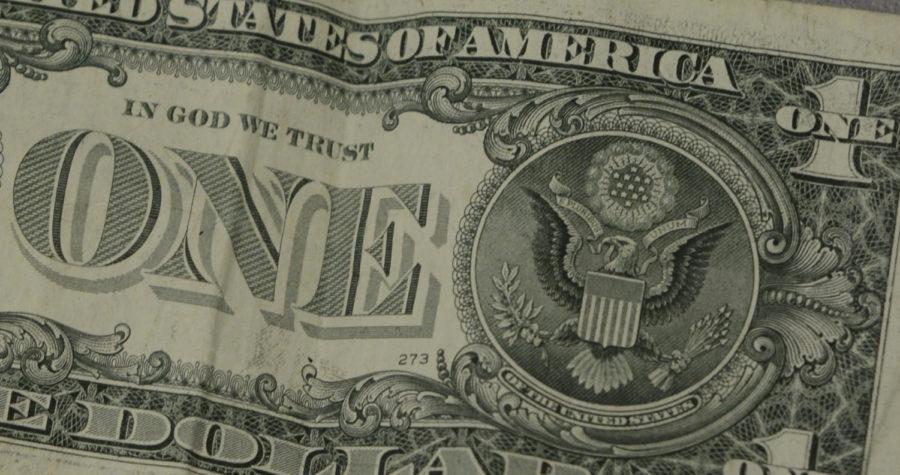Heckle: The United States is not a Christian nation
Charlie Coffey/Iowa State Daily
religion and gov.jpg
March 8, 2016
The theocratic element of the GOP that has polluted U.S. politics for the last 40 years has never been more evident than during the current campaign cycle. With seemingly every Republican candidate using the Christian God to appeal to Christian voters or in the very least to reaffirm their “family values,” questions about the place of Christianity in politics draws concern over the fundamental beliefs of our nation.
The answer is plain and simple: the United States is not, nor has it ever been, a Christian nation. As infuriating as this fact is to the GOP — which is why members refuse to acknowledge it — history cannot deny that the United States is essentially a secular nation. This fact, by definition, is the only reason freedom of religion can exist. Even though the majority of this nation follows the Christian faith, a nation of Christians is not the same as a Christian nation. This principle, in itself, allows not only Christianity but all other faiths and philosophies to flourish as equals.
The principle behind freedom of religion is that congress cannot legislate religious practice or ideology. This means a national religion of any sort is contradictory to almost the entirety of the First Amendment. Freedom of religion itself means a freedom from religion, ergo the separation of church and state.
However, during the late 18th century, a new renaissance led by great minds such as John Locke and Thomas Paine began to cause a widespread questioning of religious principles among the world’s educated. The egalitarian ideas that inspired the Founding Fathers were founded with a basis in deism — the belief in a supreme being or creator who does not intervene in the universe.
This deistic world view was not lost on the Founding Fathers. With Benjamin Franklin being openly deist, and Thomas Jefferson sharing many similar views — though never actually specifying his religious belief — the argument that the United States was founded by Christians is nothing more than a blatant assumption. Additionally, George Washington was influenced by deism even in the eyes of his pastors. However, the most obvious argument against the founding of the United States as a Christian nation is a statement made by John Adams, who addressed the issue head on by saying, “The Government of the United States is not, in any sense, founded on the Christian Religion.”
Need I say more?
Even more telling than the religious views of our Founding Fathers are the documents that make up the basis of the nation’s ethos. The Declaration of Independence, Constitution, Articles of Confederation and the Federalist Papers never mention the Christian God. In fact, the closest anyone can come to claiming that our nation’s founding documents justify a Christian theocracy are four references to a higher power in the Declaration.
However, none of these references mention any sort of specific deity — the closest it comes is the mention of a “Creator,” which is unsurprising for a document written by a deist. These appeals to a higher power were used to exemplify the necessity for human dignity, not to argue for a religious nation.
Yet, none of these facts have deterred fanatics from attempting to push religion on governmental institutions. In 1861, the National Reform Association — a movement formed in the mid-1800s angered by exemption of the Christian God from the Constitution — argued in front of Congress to change the Preamble of the Constitution. Arguing that the Civil War was a result of omitting God from the Constitution and not as a result of slavery, The National Rifle Association wanted to consider Jesus as a sort of supreme leader of the nation. Former President Abraham Lincoln and Congress, wanting nothing to do with the radical group, appeased it by allowing “In God We Trust” to be printed on coins.
However, what the initial printing of this new and unconstitutional motto did was far from uninterrupted. The currency of the United States had multiple spans of years when “In God We Trust” was rightfully omitted from printing. Even Theodore Roosevelt, a devout Christian himself, argued against its printing in 1907.
It wasn’t until 1956 that “In God We Trust” was signed in as a national motto by Eisenhower. However, this religious intrusion, along with the addition of “under God” into the Pledge of Allegiance two years prior was more of political statement than one of religious nature. As the threat of “godless” communism began to plague almost every aspect of American life, Eisenhower felt that a sort of unifying morality for the country. The term ‘God’ was less a religious statement than a shorthand of American ideology.
It seems that the influence Christianity has gained in this nation is less of a religious awakening than a group of fanatics taking advantage of a scared and broken nation.
Yet, with the rich history of religious intrusion on our secular nation, along with the principles of our Founding Fathers and the documents that define the United States, many Republicans are simply unable to grasp the idea of true freedom of religion. With candidates such as Ted Cruz and former candidate Ben Carson calling for what they — falsely — believe to be a “resurgence” of a Christian America, the theocratic hypocrisy of the GOP is shining brighter than ever.







